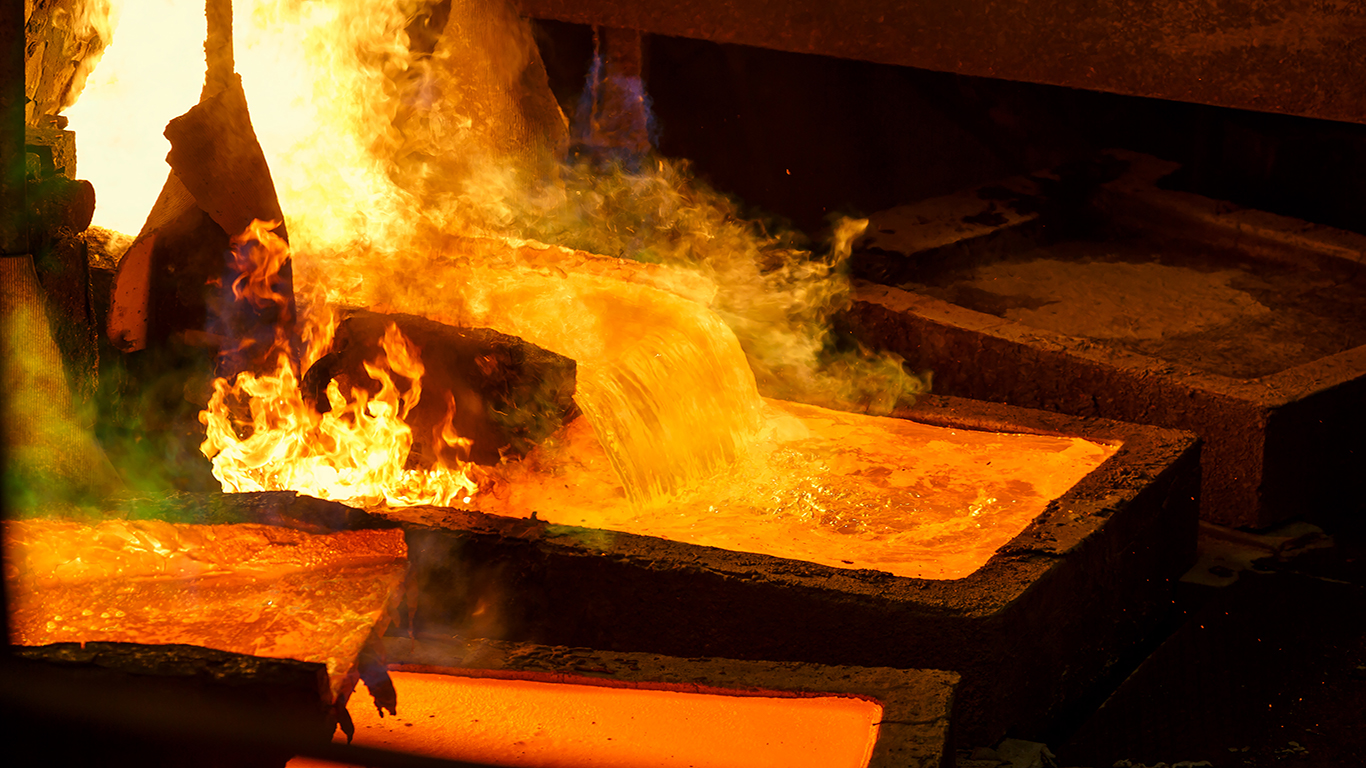Today the Innovation Caucus published their report exploring the innovation intentions of micro, small and medium sized enterprises (SMEs) in foundation industries (FI). Commissioned by Innovate UK. This study was commissioned by Innovate UK. Download the full report here.
Supplying core materials for use in manufacturing cement, paper, ceramics, metals, chemicals and glass, the foundation industries have a combined annual turnover of £67.5 billion, and with 250,000 workers, employ 10% of the UK’s manufacturing workforce. Playing a crucial role in the UK’s manufacturing supply chains, the foundation industries have potential for growth and innovation in the economic sector, and in considerations of the wider impact of their operations on the environment.
The Foundation Industries and Innovation
Despite their key role in the UK manufacturing economy, the foundation industries have seen a sharp drop in their share of UK GDP – declining by 43% between 1996 – 2016. Furthermore, innovation activity in the foundation industries is lower than in other nations. We have found that despite representing over 98% of the foundation industries, FI SMEs (firms with fewer than 249 employees) are less likely than larger FI firms to innovate, invest in research and development, or to adopt new technologies that benefit the environment.
We showed that medium sized FI SMEs report relatively high rates of innovation, while small and micro FI firms are less likely to have innovated over the past five years (a pattern replicated in spending on research and development, where fewer than 14.75% of small and micro FI firms reported spending over £100,000 p/a compared to over 50% of medium sized FI firms).
Our findings show that overly broad perceptions of innovation may be constraining growth and performance. Changes to FI firm products, processes, or practices tend to be driven by customer demand. In this context, ‘innovation’ is understood as adopting a new technology or process that already has a proven track record in the industry, rather than world-leading or transformative initiatives.
The Foundation Industries and the Environment
The foundation industries are currently very energy intensive in producing materials, and also have the potential to contribute to creating greener products, such as to reduce building heat loss. However, our findings show that very few FI firms are currently innovating in response to environmental concerns, suggesting that the Net Zero agenda has not yet stimulated widespread change to production technologies or processes in these industries. There may be opportunities to increase energy efficiencies within the foundation industries and to encourage their contribution to reducing emissions in downstream applications.
Our Conclusions
In our report, we explore FI firms’ innovation in relation to willingness (openness to change and growth), capability (access to resources) and capacity (ability to commit resources to drive change). Foundation industry SMEs demonstrate strong willingness to innovate frequently, and most have plans for future innovation. However, their tendency to define innovation broadly to include all changes and improvements to products, processes, or practices may mean that they are enthusiastic about incremental innovation, but may be less open to more industry-leading activities in the absence of external incentives.
The innovation capability of foundation industry SMEs is strongly influenced by their suppliers and customers, who can provide valuable incentives to innovate, suggesting that interventions to encourage innovation across the supply chain could potentially enhance performance upstream and downstream. It has been interesting to see that there is relatively low engagement of these firms with other potential innovation partners, such as universities, further education colleges, research organisations, knowledge transfer networks, industry associations, and other government agencies. The question of how to encourage this dialogue is an interesting and important one.
The innovation capacity of micro and small foundation industry enterprises is negatively influenced by instability or unpredictability in customer orders and revenue streams. Cost considerations most often influence hesitancy to innovate: a reluctance to divert resources from existing business streams to research and development or other innovation activity and external grants were not widely seen as suitable for the types of incremental R&D and innovation that firms were undertaking. However, significantly, whether they could allocate time was often a deciding factor in whether these micro and small FI firms took steps to implement innovation in their day-to-day activities. Time was identified as a hidden and valuable resource.
The report identified broad trends. However, it should be noted that FI firms also reported challenges at different stages of the innovation process. Our report delivers a strategy and tool for Innovate UK and their stakeholders to assess FI SME innovation readiness to better target interventions and signpost resources.
Please get in touch with the Innovate UK team if you would like to learn more about using the tool Transforming Foundation Industries Challenge – UKRI.
